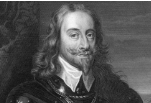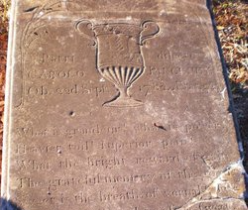





CHARLESTON'S EARLIEST DAYS
1526 - 1699
1526
Aug. 24 -- Spanish explorer Lucas de Ayllon visited the area around Cape Romain, naming it Cape San Romano, as this date is St. Romano's Day. (Source: Home in the Village, p. 4)
1540
May 1 -- Hernado de Soto and his Spanish army reached the village of the Cofitachequi tribe, near the the confluence of Pine Tree Creek and the Wateree River, near the present-day site of Camden, and were met by that village's leader, the Lady of Cofitachequi, who sought a peaceful alliance with the Europeans. (Source: South Carolina Women, p. 11)
1630
May 29 -- Charleston's namesake, King Charles II, was born "at noon with Venus the star of love and fortune shining high over the horizon." (Source: A Short History of Charleston, p. 10)
1649
Jan. 20 -- King Charles I of England went on trial, accused by Oliver Cromwell and the Puritan forces of high treason. Carolina was named in his honor.
Jan. 30 -- Charles I was beheaded as Oliver Cromwell and his Puritan Party assume rule over England.
1656
July 11 -- Mary Fisher Bayley Cross and Ann Austin sailed into Boston Harbor, becoming the first Quakers in British North America.
1662
Jan. 30 -- On the 12th anniversary of his father's execution, Charles II, recently restored to the British throne, disinterred the body of Oliver Cromwell and cut off what was left of Cromwell's head.
1666
May 5 -- Thomas Pinckney, future husband of Ruth Brewton and father of Col. Charles Pinckney, was born.
June 23 -- Robert Sanford took possession of Carolina in the name of King Charles II and the Lords Proprietors.
1671
Aug. 25 -- The British and Barbadian settlers at Albemarle Point (i.e., Charle Towne Landing) held a parliment, noting that the Church of England here had no minister. Proprietary Gov. William Sayle wrote to Lord Proprietor Anthony Ashley Cooper asking him to send "a Godly and othodox minist'r.'" (Source: A Short History of Charleston, p. 12.)
1679
Dec. 17 -- French Huguenot Abraham Fleury Sieur de la Plaine and his family left England aboard HMS Richmond on their way to seek a new life where they could worship freely in the Charles Town colony. (Source: The Goose Creek Bridge: Gateway to Sacred Places, p. 33.)
1681
Nov. 23 -- Lord Proprietor Anthony Ashley Cooper was tried and found guilty of treason in Britain.
1685
April 11 -- The Giton family, Huguenot refugees seeking a new life after the revocation of the Edict of Nantes, departed England after "three months waiting for a Carolina-bound ship." (Source: South Carolina Women, Vol. 1, p. 33)
1686
Sept. 5 -- Six years after moving to the peninsula, Charlestonians awoke at daybreak to what was probably their first major hurricane. It was known as the Hurricane of Spanish Repulse.
1688
July 29 -- Stede Bonnet, Charleston's Gentleman Pirate, was christened at Christ Church Parish in Barbados.
1694
Aug. 20 -- In his will written on this date, Capt. John Coming left his entire estate to his widow, Affra Harleston Coming.
1695
Aug. 17 -- John Archdale, a Quaker, was appointed Governor of the Carolina colony.
Nov. 1 -- John Coming, one of Charles Town' earliest settlers, died.
1698
Feb. 24 -- A fire broke out and spread quickly thoughout the town over the next two days, leaving more than 50 families homeless.
Aug. 8 -- Mary Fisher Bayley Cross wrote her will, noting that she was "very sick and weak."
Nov. 10 -- Mary Fisher Bayley Cross's will was executed.
Dec. 10 -- Affra Harleston Coming deeded 17 acres of land south of George Street to St. Philip's Church. It was known as the Glebe Lands, or lands belonging to the church.
Dec. 28 -- Affra Harleston Coming divided her estate between her nephew, John Harleston, and her husband's half-nephew, Elias Ball.






